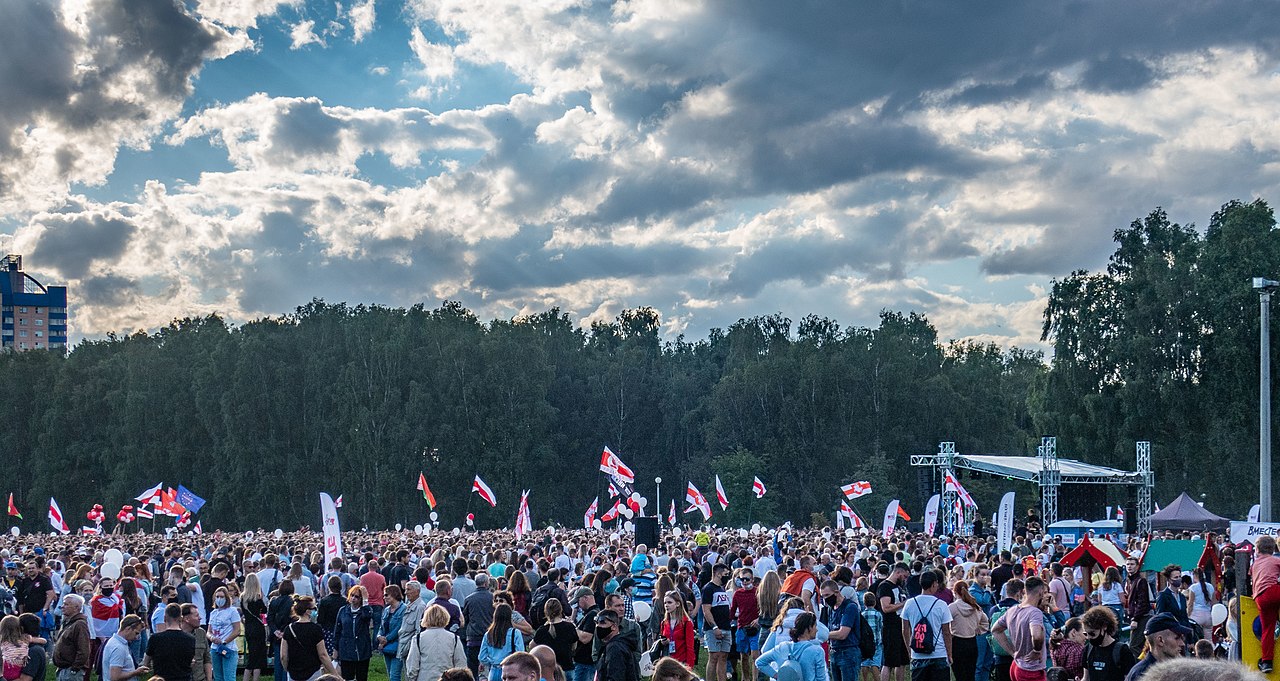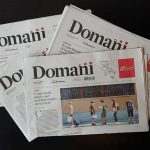The media – both outside and inside Belarus – played a key role in the struggle for the immediate future of the land between Russia and the EU.
So perhaps it should have come as no surprise when at the end of July 2021 Belarus government moved to close down the country’s only independent journalists’ group, the Belarusian Association of Journalists (BAJ), the sole professional journalists body in Belarus defending free and independent journalism and a mainstay of resistance to the government’s continuing crackdown.
Inside Belarus on one day alone – August 27 2020 – the AEJ said 47 local and foreign journalists were reportedly detained for several hours and forcibly taken away in police buses to a Ministry of the Interior building, preventing them from covering peaceful protests that took place that day in the centre of Minsk.
On August 31 2020 the Belarusian Association of Journalists reported nine new cases of the detention of journalists, raising the total number of cases of violent attacks and detentions of journalists since 9 August to 141.
About 20 journalists working for foreign news outlets including the BBC, Reuters, AP and AFP, ARD, Deutsche Welle and Radio Free Europe/Radio Liberty, had their accreditation cancelled and were deported. After two journalists working for the BBC’s Russian Service were barred and deported, the BBC condemned “‘in the strongest possible terms this stifling of independent journalism”.
The AEJ condemned the use by Belarus authorities of violent force, beatings and other assaults against dozens of journalists, both in public or in places of police detention, and numerous reported cases of brutal sexual assault, torture and beatings against protesters who were arrested and detained.
But perhaps television screens across Belarus best made the point on the morning of Monday August 17 2020 –an empty news studio greeted viewers on the country’s main channel Belarus One. 300 of the state tv channel’s 2000 workers went on strike against besieged Lukashenko.
They were not the first journalists to protest as others inside Belarus had previously taken a stand. And some independent media such as www.tut.by reported on the growing street protests and Lukashenko’s crackdown.
In the first days particularly, how Belarusians got their information despite an internet blackout and no obvious leader is a fascinating story of today’s digital media detailed by Wired magazine.
At the same time, interestingly, the Russian state news agency Tass stayed relatively neutral in its coverage and Russian media in general reported the story widely.
In the west there were growing calls for action because of human rights and media freedom violations.
The EU’s move towards sanctions came after calls from Reporters sans Frontieres (RSF) and EU Commissioner Ursula von der Leyen. RSF said it was “appalled by the unprecedented scale of the crackdown” on journalists and called on the EU to condemn the repression and sanction those responsible.
Amnesty International similarly protested against the arrests and Latvian-based Meduza which reports on Russia and the former Soviet Union detailed many of them.
AEJ on closing Belarusian Association of Journalists
European Federation of Journalists warning on BAJ
UN report on detentions
AEJ demands release of journalists – January 2021
AEJ call for international action to stop media suppression – September 2020
Journalists among thousands arrested in harsh crackdown
Protests continue
Empty tv news studio
Reporting Belarus
Growing street protests
Communicating the protest
The view from Tass
Russian media reporting
RSF calls for sanctions
Amnesty on the protests
The view from Latvia
Outside Belarus
Early reporting across the world came along with analysis of Vladimir Putin’s options from the Washington-based Council on Foreign Relations, the Washington Post-owned Foreign Policy, and even from inside Russia in the Moscow-based English language Moscow Times.
Council on Foreign Relations analysis
Foreign Policy
A view from inside Moscow
UK Financial Times
The Washington Post
The Christian Science Monitor
The Guardian
Hong Kong South China Morning Post
The Economist

Photo by Homoatrox




